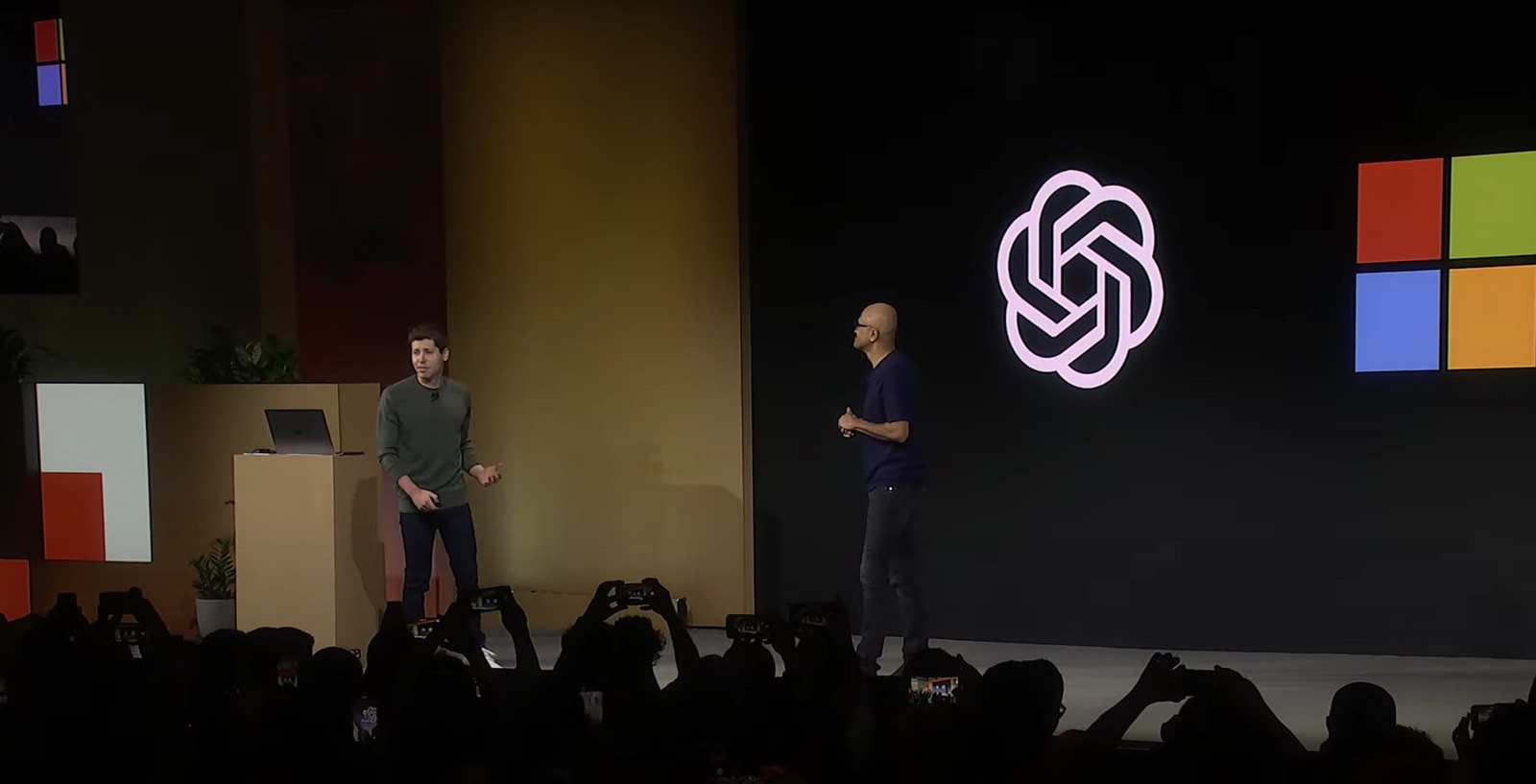The OpenAI board of directors shocked the world on Friday by firing CEO Sam Altman. Nobody outside the board knew it would happen, with major investor Microsoft having found out just one minute before the public announcement went out. Nobody could have foreseen the rollercoaster ride that followed. And nobody outside of the company knows the real reason why OpenAI fired Sam Altman. Not even Microsoft CEO Satya Nadella, who spoke in recent interviews about the OpenAI board’s breakdown in communication.
Yet the answer is very important considering what has happened since Friday. Over the weekend, it seemed like Altman would return as CEO, but the talks with the board ultimately fell through. Then, early on Monday, Satya Nadella announced the hiring of Sam Altman and Greg Brockman.
Hours later, over 700 OpenAI employees threatened to leave the company for Microsoft unless the OpenAI board resigned. Strangely enough, Ilya Sutskever was one of the employees who signed the letter. Ilya Sutskever is also an OpenAI board member who is believed to have been instrumental in Altman’s firing on Friday.
It’s unclear whether we’ll ever find out why OpenAI decided to let go of its charismatic leader. But there are theories online that could explain what the breakdown in communication means. The most popular one concerns Sam Altman’s extracurricular interests outside of ChatGPT development at OpenAI, and Altman’s lack of clear communication about the Tigris project might be the real reason why he was fired. However, these interests were related to ChatGPT and would have directly benefited OpenAI.
Tigris and the Jony Ive project
A report from Bloomberg mentioned two specific Altman interests that the board might not have appreciated.
The former OpenAI CEO had traveled to the Middle East in the past few weeks to raise capital for new ventures. One of them, code-named Tigris, would have formed a new company to build Tensor Processing Units (TPUs) that OpenAI needs for AI computing power.
Tigris would compete against Nvidia, whose GPUs are the most popular among AI companies for their processing capabilities. Interestingly, Microsoft recently announced its own custom chip for AI servers.
Separately, Altman was looking to raise money for an AI-first hardware company, the ChatGPT device that appeared in recent reports. Apple’s former design guru Jony Ive would have been involved in this second company.

Both projects would have directly benefited OpenAI. A custom TPU would reduce the company’s reliance on rival products and allow it to cut operating costs for ChatGPT and other generative AI products.
One of the points Altman made on stage at DevDay a few weeks ago was the reduction of the expenses for using OpenAI’s various language models, including GPT-4. These price cuts were unrelated to a future chip venture but indicate that reducing operating costs is a key objective for OpenAI.
As for a piece of ChatGPT-first hardware, there’s no question that there’s a future for that. Every big tech company is adding generative AI to their products, and personal AI will become a must-have feature for new devices in the near future.
Tigris and the ChatGPT hardware project would have required tens of billions of dollars in investments. Altman reportedly talked with Softbank, Saudi Arabia’s Public Investment Fund, Mubadala Investment Company, and other unnamed parties. The report also mentions Microsoft as a potential investor.
Separately, Vinod Khosla said publicly that it would continue to support Altman’s endeavors at OpenAI and other companies.
Why would OpenAI’s board be unhappy?
On top of that, OpenAI was working on finalizing a new round of financing where engineers would have been able to sell their shares. OpenAI was looking for a valuation of up to $90 billion. That seems impossible, given what happened on Friday.
The Bloomberg report says that SoftBank and others would have wanted in on the deal, but they were put on a waitlist for a future round of funding. Meanwhile, Altman had urged investors to go for his new ventures.
Altman’s moves seem logical for the CEO of a company with 100 million active users. A company that sold out ChatGPT Plus capacity before his ouster. Of course, you’d want a vision that includes custom chips that are key for ChatGPT’s future.
The problem with that line of thinking is that it doesn’t apply to OpenAI. OpenAI is a non-profit that operates the for-profit company OpenAI Global, a subsidiary that makes money off of ChatGPT.
If the Bloomberg report is accurate about the reasons why the board fired Altman, it means the former CEO might have given the group some concerns. The non-profit seeks to develop safe AI for humankind. In contrast, Altman’s moves might favor fast AI advancements for commercial purposes that skirt some safeguards.
This is just speculation at this time. And we cannot know whether Bloomberg’s information is accurate. But let’s not forget that the OpenAI board appointed Emmett Shear, who has advocated for a slower pace of AI development.








